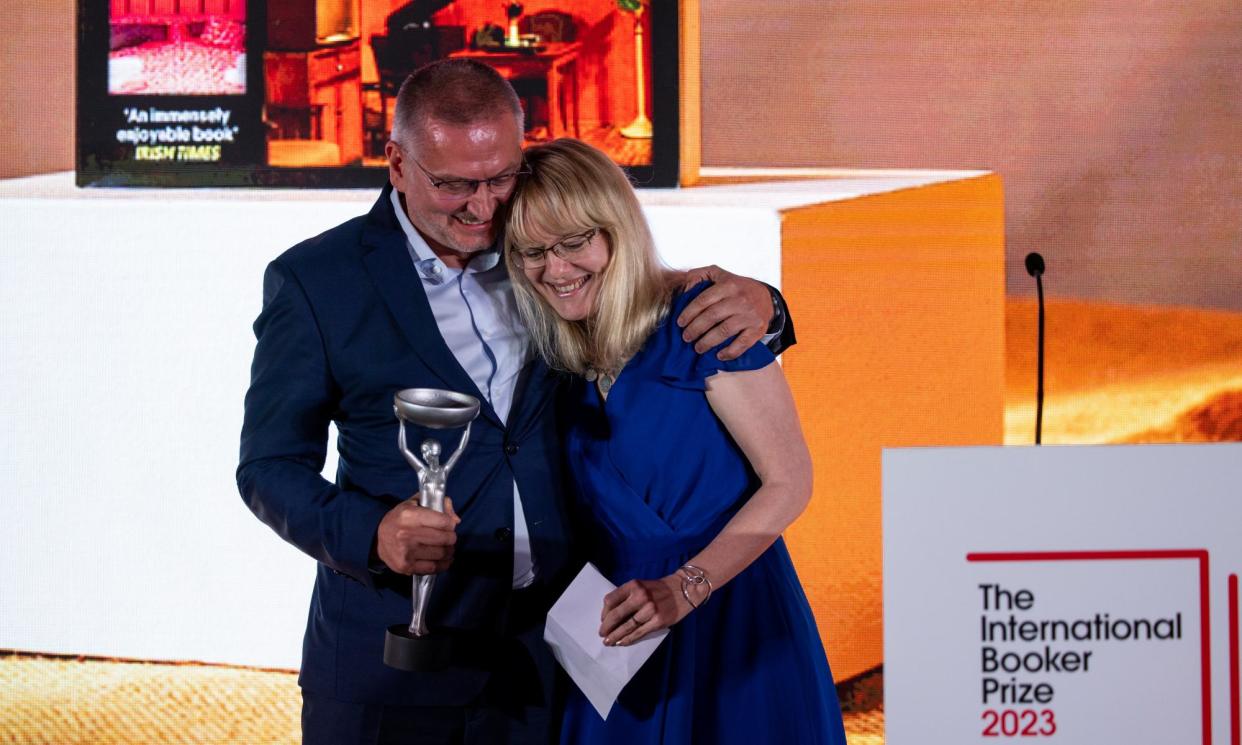Survey finds generative AI proving major threat to the work of translators

More than a third of translators have lost work due to generative AI, a survey by the Society of Authors (SoA) has found. More than four in 10 translators said that their income has decreased because of generative AI, while more than three-quarters believe the emerging technology will negatively affect their future income.
The SoA, the UK’s largest trade union for writers, illustrators and translators, ran the survey in January. It found that 37% of translators had used generative AI to support their work, and 8% used it because they were asked by their publisher or commissioning organisation.
Thomas Bunstead, whose translations from Spanish include The Book of All Loves by Agustín Fernández Mallo, said it is important to draw a distinction between literary translators and “commercial” translators. “Though a third of translators have responded to the SoA survey saying they think they’ve lost work to AI already, literary translation remains in the hands of humans,” he said. “The work that has presumably been handed over to AI will be the kind of uncomplicated bread-and-butter stuff which doesn’t require so much nuance,” such as instruction manuals.
“Idiomatic, knotty and complex writing,” is likely to remain with human translators, agrees Nichola Smalley, whose translations from Swedish and Norwegian include A System So Magnificent It Is Blinding by Amanda Svensson. “But perhaps the people translating crime and romance novels who are currently getting less work due to AI will all start getting into the complex stuff and we’ll all be fighting for space in that niche. I hope not!”
Ian Giles, the co-chair of the Translators Association whose translations from Scandinavian languages into English include the forthcoming The Cuckoo by Camilla Läckberg, said that his income from commercial translation work has fallen significantly since the beginning of 2023. The loss of non-literary streams of income for literary translators will mean the “raising of the bar to entry into the industry, with only those with wealth able to translate literature for publication”. He also said that cost-cutting is not confined to non-literary translation – a publisher specialising in ebooks and audiobooks for which he previously translated has switched to a process known as post-editing, when an AI translator has a first go at translating a text before a human editor checks it and makes tweaks.
Related: ‘Translation is an art’: why translators are battling for recognition
Nuanxed, a company which facilitates translation via post-editing, said that while translators are “essential in maintaining high quality literature in translation”, their “methodologies will need to evolve alongside technological advancements”. CEO Robert Casten Carlberg said that “integrating AI into the translators’ toolbox” will enhance productivity “without sacrificing creativity or quality”.
However, Smalley said there are concerns that post-editing can create “a lot more work” for translators, who have to carefully compare texts to catch misreadings and “poor or unidiomatic” style. “Colleagues who have done this kind of post-editing work say that it requires a far higher degree of attention, because the AI generated text often reads so plausibly,” she said.
The survey results come in the wake of a boom in popularity of translated books, highlighted Bunstead. He added that “translators, like all freelancers, can go through lean periods. They won’t always know for certain the reasons why, but AI is currently the obvious explanation. A few years ago Brexit insularity was the root of all our money worries.”
Of the 787 SoA members who responded – including writers of fiction and nonfiction, scriptwriters, poets and journalists, as well as illustrators and translators – 94% reported wanting credit or compensation when their work is used to develop generative AI tools. In light of the survey, the SoA said that there is an “urgent need” for government regulation of AI tools to ensure they are developed and used “ethically and lawfully”.
“I’m certain that the act of creative and literary translation will live on in one shape or another,” said Giles. “For many there is a deep-seated desire to translate and I also believe there is an audience that desires human-translated content.”


